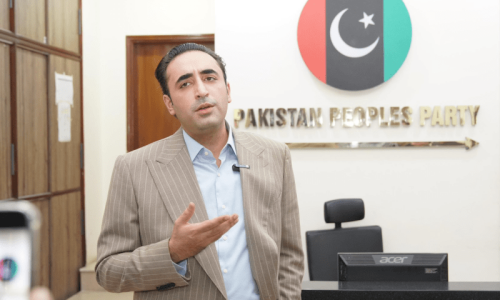ISLAMABAD, Dec 14: Hundreds of schemes meant for providing telecom services in more than 12,000 far-flung towns and villages of the country at a cost of Rs15 billion came to a halt about nine months ago, resulting in non-utilisation of internationally-mandated universal service fund (USF), according to sources.
As a result, telecommunication companies have threatened to stop making mandatory contributions in the form of access promotion charges to the USF which has now swelled to over Rs35 billion.
At least four leading companies are on record as having asked the government to stop collecting USF contributions for subsidising telecom access in less developed areas under international obligations that envisage providing telecom and IT facilities to all citizens as a basic right.
“We propose that the further collection of USF and R&D contribution may kindly be capped till the current funds are efficiently consumed,” said a joint letter sent to the ministry of information technology and telecom by the four companies — Mobilink, Telenor, Warid and China Mobile. Dawn
The sources told that the USF — a company established under the Companies Ordinance on a suggestion of the World Bank and International Telecommunication Union — has not be able to award contracts for the launch of rural telecom services, broadband access, laying of optic fibre cables and multi-purpose community telecentres in more than 6,000 villages since March this year.
Similar projects in about 3,000 villages could not be completed or put into operation because the USF board of directors has failed to hold its meeting since March. In many cases, the bidding process has been completed but contracts could not be signed because of a legal authorisation that the board of directors have to issue.
The board, represented equally by the government and nominees of the telecom companies and internet service providers, is led by the minister for telecommunications.
Interestingly, the USF has not been able to get its annual budget approved either by the government or its board of directors and has exhausted its reserve money while paying the staff salaries. The employees are unlikely to get salaries next month.
The USF is run on an ad hoc basis by a chief executive officer whose contract expired a few months ago. Its sister organisation — the IT Research and Development — is without a head for almost a year.
Mainly because of poor performance by the government in executing rural schemes despite initial successful implementation carried out by the USF, the cellular companies have started building up a case for a financial crisis in the industry to utilise these funds for their capacity expansion, the sources said.
Under the telecom policy, cellular companies contribute 1.5 per cent and 0.5 per cent of their gross revenue minus interconnect payments to the USF and Research and Development Funds, respectively. USF also gets handsome amount in the form of mobile access promotion charges, leading to accumulation of about Rs35 billion in the two funds.
The telecommunication companies now claim that “sufficient funds have now accumulated in USF and R&D Fund which are carried forward each year due to non-utilisation”.
In case the past utilisation trend is extrapolated the amount may be sufficient for several years to come, said the companies and thus called for a freeze on these contributions in future.
Before March 2010, the USF made an investment of about Rs25 billion in un-served areas to provide telecom services, of the amount Rs17 billion came directly from the USF and remaining Rs8 billion was contributed by telecom companies through bidding.
The USF took in hand four kinds of telecom and IT services. Under the rural telecom programme, services are to be provided in harsh areas across the country, including far-flung regions of Balochistan and Sindh, by setting up of public call offices in 12,000 villages at an estimated cost of about Rs4.5 billion.
Under another programme optic fibre cables have to be extended to about 125 tehsils. Contracts worth Rs4.51 billion have been awarded.
Another programme aims to provide 405 towns with subsidised broadband services at an estimated cost of Rs6.2 billion.














































Dear visitor, the comments section is undergoing an overhaul and will return soon.